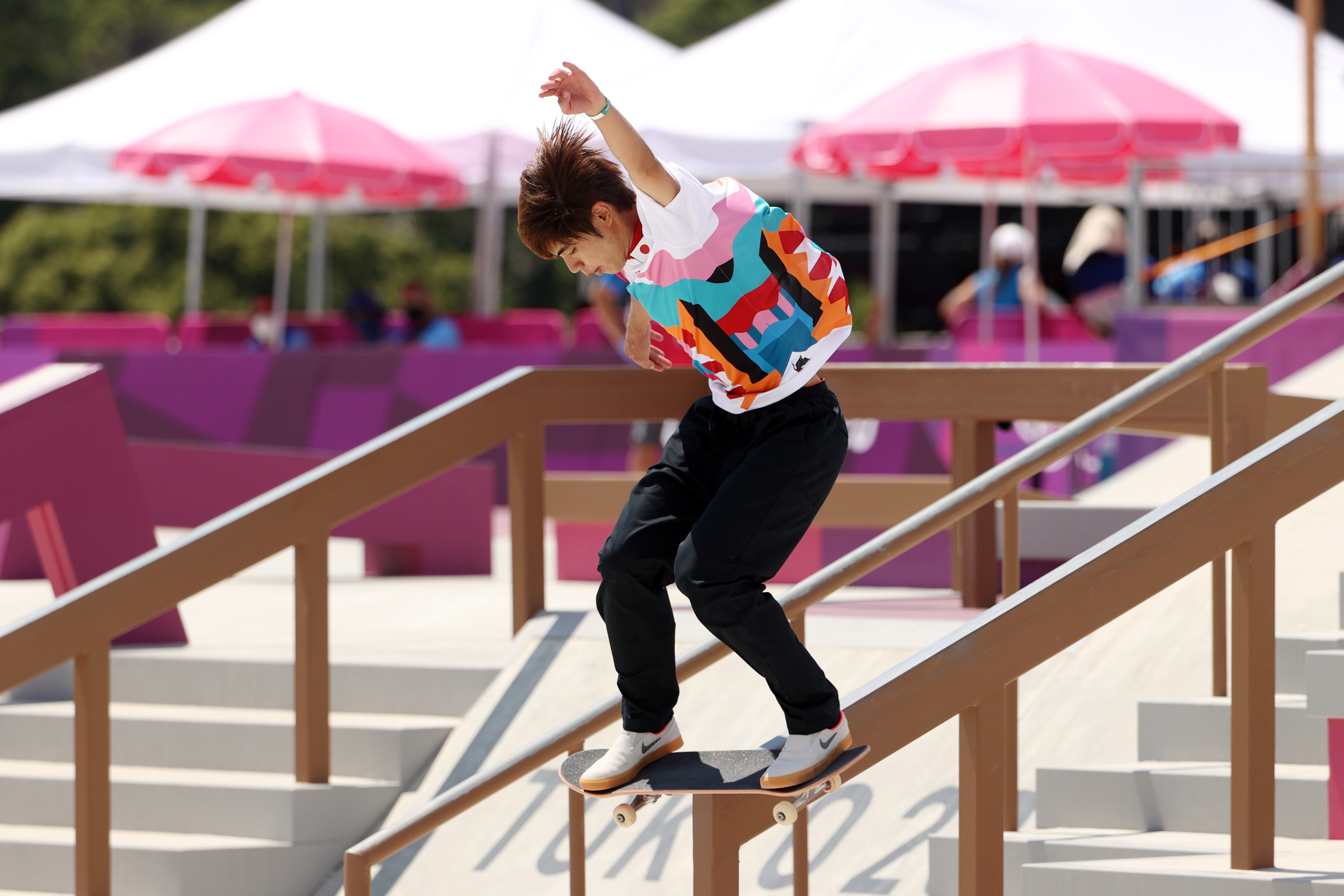Jeans, trainers, AirPods: Skateboarding makes Olympic debut with a difference at Tokyo 2020
Skating made a captivating Olympic debut, managing to shine on the global stage while retaining its alternative ethos from the rest of the Games

Your support helps us to tell the story
From reproductive rights to climate change to Big Tech, The Independent is on the ground when the story is developing. Whether it's investigating the financials of Elon Musk's pro-Trump PAC or producing our latest documentary, 'The A Word', which shines a light on the American women fighting for reproductive rights, we know how important it is to parse out the facts from the messaging.
At such a critical moment in US history, we need reporters on the ground. Your donation allows us to keep sending journalists to speak to both sides of the story.
The Independent is trusted by Americans across the entire political spectrum. And unlike many other quality news outlets, we choose not to lock Americans out of our reporting and analysis with paywalls. We believe quality journalism should be available to everyone, paid for by those who can afford it.
Your support makes all the difference.As the American Jagger Eaton stood on the lip preparing to drop into his second run, his head began bouncing to the beat. It is safe to assume the skatepark is the only place over the next couple of weeks where Olympic athletes will be listening to AirPods while they work. There won’t be many gymnasts, sailors or 110m hurdlers wearing jeans, either.
The sport made its Olympic debut under the blistering Tokyo sun on Sunday, and it was a captivating ride. Some in the skateboarding community have been deeply sceptical about its move into the mainstream, feeling it is selling its soul. But if anything skating managed to achieve both: finally performing on the Olympics’ uniquely global stage while retaining an entirely alternative ethos from the rest.
Eaton, the son of a former US gymnast, had to regather one of those AirPods when he took a tumble but he did enough over the course of the final to win bronze. Aged only 20, the Arizonan has some future ahead of him. Brazil’s Kelvin Hoefler won silver and the mesmerising local talent Yuto Horigome won the first skateboard gold in Olympic history, to the delight of the few Japanese officials and media lucky enough to witness it.
Follow Tokyo Olympics 2021: Latest medals and updates
If only there had been a full crowd to enjoy the moment. It was the culmination of an unlikely journey for Horigome, whose youthful rebellion came simply in the act: skating was not an encouraged pastime during his childhood in Japan and it is still widely viewed with a frown, but his father, a Tokyo taxi driver, had loved skating and bought his son a board. Horigome and his friends honed their skills on a makeshift wooden halfpipe under a bridge where skating was forbidden.
Even to an untrained eye it was clear to see Horigome’s mastery of the stairs, benches and rails; he showed it repeatedly over the course of two 45-second runs and five individual tricks, with the top four scores counting towards a final rank. The moment that effectively guaranteed gold was his last trick, leaping high before grinding down a rail and spinning at the bottom, almost tumbling back off his board but hauling himself back up from the deepest of squats to land it. It was worth a giant 9.30 and it made history.
When realisation dawned on the park that Horigome had won the sport’s first Olympic title, Nyjah Huston – the Californian who has dominated the men’s skateboarding scene for the past six years – sought him out to offer his appreciation. It said plenty about Huston’s character, having arrived in Tokyo as the hyped-up favourite only to depart empty-handed in seventh place after a fall himself, but it was also a moment which spoke of the kinship that skateboarding sows, of its own fraternity.
Huston has been down an entirely different road to reach this skatepark. He was born in the US but moved with his Rastafarian parents to Fiji when he was young, then to a farm in Puerto Rico where they sold marijuana to make ends meet. He returned to California and quickly became a sensation, turning pro aged 11, and in the intervening years the now 26-year-old has turned into something of an American megastar, making regular TV appearances and counting Justin Bieber among his friends.
Huston is now the very definition of mainstream and in that sense US skateboarding’s poster boy should be the antithesis of its counterculture image. But the fact that he, Eaton and Horigome all come from such different worlds shows that skating belongs to everyone and to no one; what unites them is their love of something simple, something that requires only a board and somewhere to roll, love which they each turned into an intricate art form.
Skating is in the spotlight but that doesn’t mean it has to lose its essential characteristics. It will always be played out on the edges of social space and its place in the Olympics feels no different: unusual and peripheral. But the Games opens up unique opportunity, and Horigome has reaped the rewards.
Join our commenting forum
Join thought-provoking conversations, follow other Independent readers and see their replies
Comments